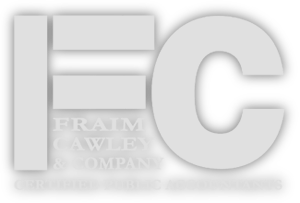When we think about the idea of a bonus, there is almost invariably a positive connotation to it. Bonus bucks, bonus bites, and if you’re really fortunate a bonus from your employer. They’re a prize – and all for no additional cost. Yippee!
Some companies have even made a science of creating the illusion of a bonus – such as Jos. A. Bank’s preposterous “Buy 1, Get 7 Free” and similar deals. A true bonus? Well, maybe not so much.
There is however at least one instance when an honest-to-goodness bonus is a bad idea.
I’ve written a number of times on some of the nuances of S-Corporations. The tax benefits, the drawbacks, potential penalties, and new tax laws affecting them. But when I’m meeting with prospective clients or talking to existing clients I seem to get one question more than any other, so I thought it might be good to write a short blurb on it. The question? “How do I pay myself if I need more money than my salary? A bonus?”
For perspective, reference my article from last year explaining the differences between different corporate setups. Again, the major advantage to the S-Corporation is that earnings in excess of officer payroll earnings are not subject to self-employment (Social Security and Medicare) taxes. Business owners must give themselves a reasonable salary, as required by the IRS.
And that often leads to the question: “how do I pay myself if I need more money?” The initial inclination (a bonus) is actually the worst option. Bonuses have to be run through payroll and are de facto employee earnings. As such, they will still be subject to Social Security and Medicare taxes – thus negating the benefit of the S-Corporation.
Instead, corporate shareholders need to take these cash withdrawals as shareholder distributions. These can also be called owner withdrawals, stockholder draws, or dividends. Structured in this way, none of these cash withdrawals are subject to SS and Medicare. The income from an S-Corporation is taxed when earned, not when distributed. So there is no additional tax paid for simply withdrawing money from the S-Corp. Income tax was already assessed when the income was earned.
So the basic rule of thumb is: salary to an appropriate and reasonable amount and anything beyond that as a shareholder distribution. There are very few instances where an owner bonus would be appropriate. And again, to be clear, I’m not saying that you as the owner should not pay yourself out the money. You’re getting the exact same amount. It’s just a question of classifying in the most tax-advantaged manner possible – so that you get to keep more of what you take out instead of having it make that one-way trip to Washington, DC.
As always, if you have any questions please do not hesitate to contact me and we can discuss them.
Any accounting, business, or tax advice contained in this communication, including attachments and enclosures, is not intended as a thorough, in-depth analysis of specific issues, nor a substitute for a formal opinion, nor is it sufficient to avoid tax-related penalties.




